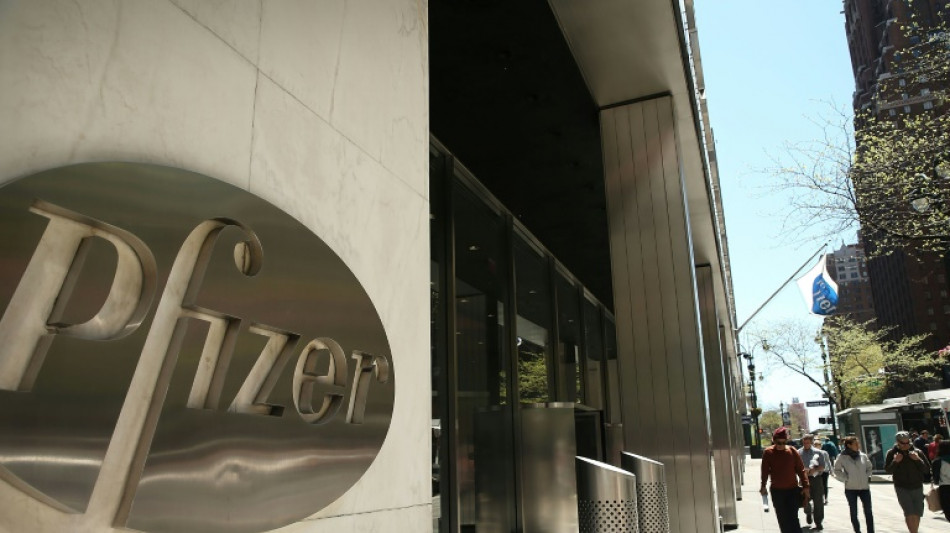
RBGPF
0.8100

Pharmaceutical giant Pfizer has received US approval for a gene therapy against a form of hemophilia, a rare and inherited blood clotting disorder, the company said Friday.
Beqvez, which is given as a single intravenous infusion, was shown in a clinical trial of 45 people to be better at preventing bleeding among adults with moderate to severe hemophilia B, compared to regular infusions of a protein that promotes clotting, called protein factor IX (FIX).
The current standard of care is cumbersome, requiring infusions up to several times per week.
"Many people with hemophilia B struggle with the commitment and lifestyle disruption of regular FIX infusions, as well as spontaneous bleeding episodes, which can lead to painful joint damage and mobility issues," said Adam Cuker, director of the University of Pennsylvania's Comprehensive Hemophilia and Thrombosis Program, in a Pfizer statement.
"A one-time treatment with BEQVEZ has the potential to be transformative for appropriate patients by reducing both the medical and treatment burden over the long term."
The therapy was generally well tolerated but a common side effect was elevated liver enzymes, a sign of liver inflammation that wasn't accompanied by outward symptoms. Still, patients are advised to avoid alcohol for up to a year following their treatment, to prevent liver damage.
Patients will be followed up to gather more data for up to 15 years.
Pfizer's genetic therapy targets hemophilia B, the second most common form of the condition, which primarily affects males. More than 38,000 people worldwide live with hemophilia B, according to the World Federation of Hemophilia.
It works by infecting the body with a virus, modified to be harmless, which delivers a functional copy of the factor IX gene to liver cells, instructing them to produce the protein that promotes clotting that the patient otherwise lacks.
It received approval by Canada in January and is awaiting review by the European Medicines Agency.
Pfizer's statement did not mention a list price, which is often a limiting factor for gene therapy treatments. Recently approved sickle cell gene therapies run to $3 to $4 million before insurance.
Y.Sharma--DT